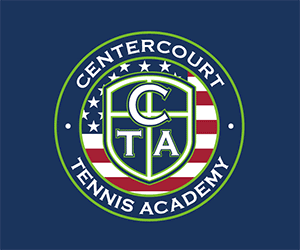The CLICK! System

It’s all about how you use your mind to achieve the results you want or how you unknowingly allow your mind to get in your own way. I asked my clients to create a Wish List of things that could improve achievement at their highest level and the list below contains some of the items that came up most frequently.
Wish List
►Increase Concentration
►Identify and Control Self-Talk
►Identify and Control Distraction
►Control Anger and Stress
►Increase Energy
►Increase Motivation
►Control Aggression
►Control Discomfort
►Improve Performance
►Improve Self-Esteem
►Improve Self-Confidence
►Identify and Resolve Subconscious Blocks
►Catch Distractions Earlier
The point that struck me immediately, upon putting this list together, was that all of the elements my clients were struggling with were internal in nature. It is about the Mind Game.
The key to the Wish List
Making up your own Wish List will allow you to address the most prominent issues you need to deal with immediately. For the athlete, it is dealing with the next shot, play or match. Let’s start at the top of the list and be more specific about how to implement a few of the items.
Increase concentration
Almost everyone can benefit from improving this element of the Mind Game. How do you increase concentration? The beginning of the strategy is simple: Identify what distracts you. The next step can be a bit more difficult: Figure out how to eliminate those distractions quickly. This is often achieved through sports hypnosis.
Identify and control self-talk
What exactly is self-talk? For some, self-talk is constant chatter within the mind. For others, it is more situation-specific. Self-talk is the internal dialogue or mental audio you encounter within your mind every day. It is the way in which you talk to yourself.
Many do not take the time to listen to how they talk to themselves. If you do not take the time to listen, you will never know whether your own self-talk is working for you or creating havoc in your own performance. If you hope to achieve any kind of self-improvement, you cannot allow negative self-talk to get in your way. Where does one start? Right now! Notice how you talk to yourself!
Identify and control distractions
Distraction can get in the way of the outcomes you want most. But, how important are these distractions?
Try this: Stand up … support yourself by placing your left hand on the back of a chair. Now, pick up your right foot and begin to rotate the tip of your foot clockwise in the air. While your right foot is going round and round, draw a big number six in the air with your right hand. What happened to your foot? It reversed direction, didn’t it? That is what happens to almost everyone.
The question from this exercise is not why this happens, but rather, how the result impacts your performance. Can you really afford even a second of distraction? How can you best control it?
Control anger and stress
Of all the distractions, these two tend to be the most significant. They get in the way of so many things in life, affecting performance and altering outcomes.
I have a client who is an ultra-marathon runner. She is focused and talented enough to run 135 miles through the unforgiving heat of Death Valley. Why do I bring her up here? She has told me, “I cannot run well if I am angry. Carrying the anger drains me.”
Anger has so much power that it can bring down the toughest athletes. One has to learn how to deal with it at the appropriate time—not during the run or the match. There are excellent strategies to do this and the ability to do this can become subconscious and automatic.
What now?
Because the mind is constantly in flux, the Wish List is not static. For most people, every day is different. Each day comes with new challenges, new distractions and new desired outcomes. The goal here is to draw from the list I have presented above and add to it any other points you would like to improve upon. Once you have done that, you can begin to select the three most important categories you wish to deal with on a daily basis.
I encourage you to call me if you have any questions about the Click! System at (917) 880-6758.






